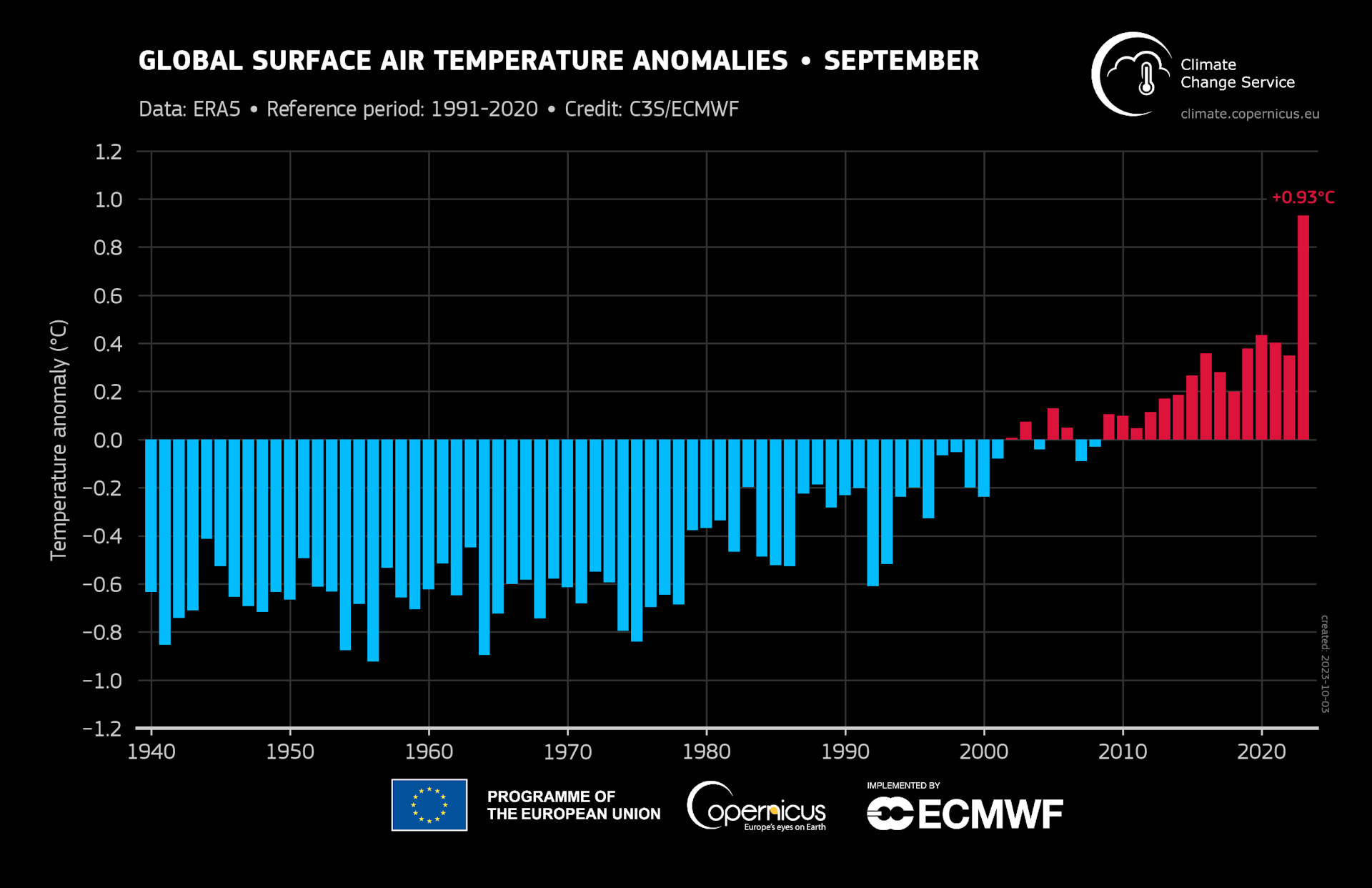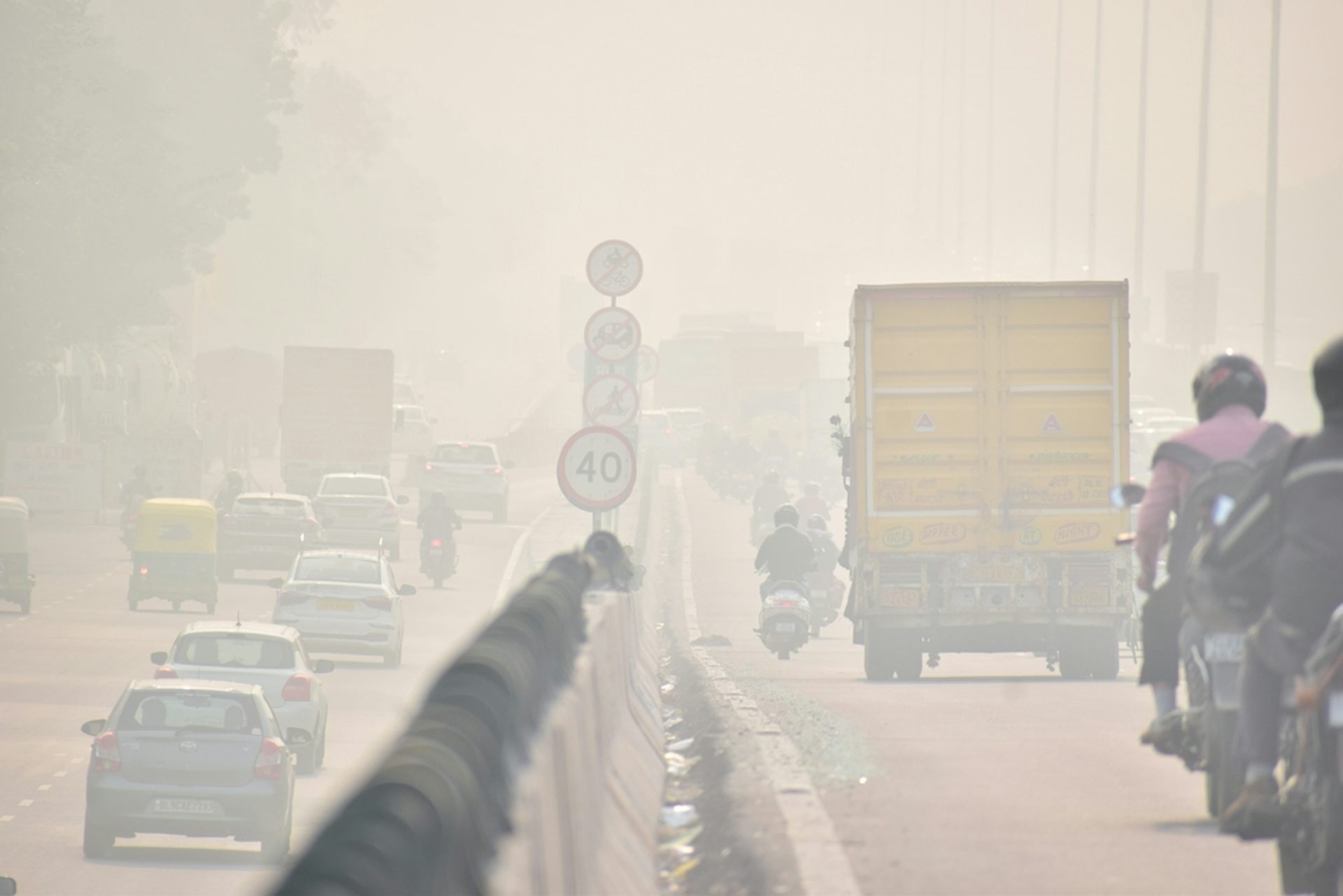6 reasons why global temperatures are spiking right now

A Pharmacy shop sign displays the outside temperature of 46 Celsius degrees (114.8 F) in downtown Rome, July 18, 2023.
AP Photo/Domenico Stinellis
As I have commented before, probably the most dangerous delusion fostered by the Abrahamic religions, is that Earth was given to humankind for our exclusive use and that we are being watched over by a benevolent magic guardian in the sky who will ensure that no long-term harm will come to us and our planet. This delusion could well result in us making this planet, our life-support system in the cosmos, uninhabitable by all but a small number of species such as bacteria and cockroaches.
Fundamentalist 'loving' Christians jibber excitedly about the 'end times', looking forward to the day when their imaginary friend comes to Earth and kills everyone who disagrees with them so they can have everything for themselves, but the only end times we face are the end times for all of us, just assuredly as a space man systematically destroying his own spaceship.
So, what is causing the record temperatures we are experiencing this year, where records are not only being broken almost every day, but being broken by record margins? In the following article, reprinted from The Conversation, Andrew King, Senior Lecturer in Climate Science, The University of Melbourne gives six reasons for these record temperatures. His article is reprinted under a Creative Commons licence, reformatted for stylistic purposes:

6 reasons why global temperatures are spiking right now
Andrew King, The University of Melbourne
The world is very warm right now. We’re not only seeing record temperatures, but the records are being broken by record-wide margins.
Take the preliminary September global-average temperature anomaly of 1.7°C above pre-industrial levels, for example. It’s an incredible 0.5°C above the previous record.

The preliminary September global temperature is well above every previous value in the instrumental record.
Copernicus
Here are six contributing factors – with climate change the main reason temperatures are so high.
- El Niño
One reason for the exceptional heat is we are in a significant El Niño that is still strengthening. During El Niño we see warming of the surface ocean over much of the tropical Pacific. This warming, and the effects of El Niño in other parts of the world, raises global average temperatures by about 0.1 to 0.2°C.
Taking into account the fact we’ve just come out of a triple La Niña, which cools global average temperatures slightly, and the fact this is the first major El Niño in eight years, it’s not too surprising we’re seeing unusually high temperatures at the moment.
Still, El Niño alone isn’t enough to explain the crazily high temperatures the world is experiencing. - Falling pollution
Air pollution from human activities cools the planet and has offset some of the warming caused by humanity’s greenhouse gas emissions. There have been efforts to reduce this pollution – since 2020 there has been an international agreement to reduce sulphur dioxide emissions from the global shipping industry.
It has been speculated this cleaner air has contributed to the recent heat, particularly over the record-warm north Atlantic and Pacific regions with high shipping traffic.
It’s likely this is contributing to the extreme high global temperatures – but only on the order of hundredths of a degree. Recent analysis suggests the effect of the 2020 shipping agreement is about an extra 0.05°C warming by 2050.
- Increasing solar activity
While falling pollution levels mean more of the Sun’s energy reaches Earth’s surface, the amount of the energy the Sun emits is itself variable. There are different solar cycles, but an 11-year cycle is the most relevant one to today’s climate.
The Sun is becoming more active from a minimum in late 2019. This is also contributing a small amount to the spike in global temperatures. Overall, increasing solar activity is contributing only hundredths of a degree at most to the recent global heat.
- Water vapour from Hunga Tonga eruption
On January 15 2022 the underwater Hunga Tonga–Hunga Haʻapai volcano erupted in the South Pacific Ocean, sending large amounts of water vapour high up into the upper atmosphere. Water vapour is a greenhouse gas, so increasing its concentration in the atmosphere in this way does intensify the greenhouse effect.
Even though the eruption happened almost two years ago, it’s still having a small warming effect on the planet. However, as with the reduced pollution and increasing solar activity, we’re talking about hundredths of a degree.
- Bad luck
We see variability in global temperatures from one year to the next even without factors like El Niño or major changes in pollution. Part of the reason this September was so extreme was likely due to weather systems being in the right place to heat the land surface.
When we have persistent high-pressure systems over land regions, as seen recently over places like western Europe and Australia, we see local temperatures rise and the conditions for unseasonable heat.
As water requires more energy to warm and the ocean moves around, we don’t see the same quick response in temperatures over the seas when we have high-pressure systems.
The positioning of weather systems warming up many land areas coupled with persistent ocean heat is likely a contributor to the global-average heat too. - Climate change
By far the biggest contributor to the overall +1.7°C global temperature anomaly is human-caused climate change. Overall, humanity’s effect on the climate has been a global warming of about 1.2°C.
The record-high rate of greenhouse gas emissions means we should expect global warming to accelerate too.
While humanity’s greenhouse gas emissions explain the trend seen in September temperatures over many decades, they don’t really explain the big difference from last September (when the greenhouse effect was almost as strong as it is today) and September 2023.
Much of the difference between this year and last comes back to the switch from La Niña to El Niño, and the right weather systems in the right place at the right time.
September 2023 shows that with a combination of climate change and other factors aligning we can see alarmingly high temperatures.
These anomalies may appear to be above the 1.5°C global warming level referred to in the Paris Agreement, but that’s about keeping long-term global warming to low levels and not individual months of heat.
But we are seeing the effects of climate change unfolding more and more clearly.
The most vulnerable are suffering the biggest impacts as wealthier nations continue to emit the largest proportion of greenhouse gases. Humanity must accelerate the path to net zero to prevent more record-shattering global temperatures and damaging extreme events.
Andrew King, Senior Lecturer in Climate Science, The University of Melbourne
This article is republished from The Conversation under a Creative Commons license. Read the original article.
There is no planet B. All we have is spaceship Earth, and we are wrecking it with our recklessness and smug complacency.





No comments :
Post a Comment
Obscene, threatening or obnoxious messages, preaching, abuse and spam will be removed, as will anything by known Internet trolls and stalkers, by known sock-puppet accounts and anything not connected with the post,
A claim made without evidence can be dismissed without evidence. Remember: your opinion is not an established fact unless corroborated.